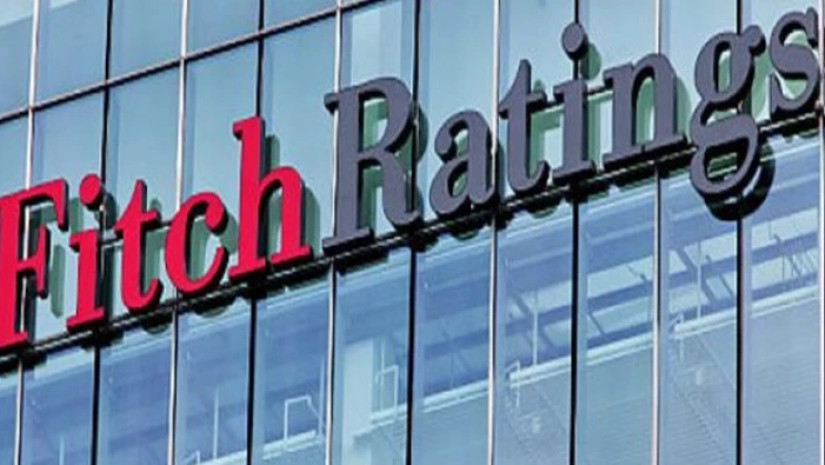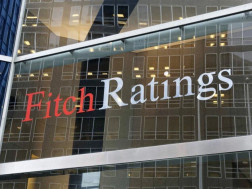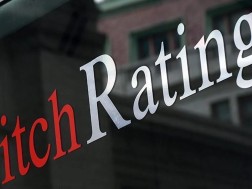Fitch Ratings has affirmed Georgia's Long-Term Foreign-Currency Issuer Default Rating (IDR) at 'BB' with a Positive Outlook.
KEY RATING DRIVERS
Fundamental Rating Strengths and Weaknesses: The rating is supported by Georgia's strong governance and economic development indicators relative to the 'BB' medians, its credible macro-fiscal policy framework, moderate level of public debt, and sound banking sector. These factors are balanced by high financial dollarisation and exposure of public debt to foreign-currency risk, and weaker external finances, including high net external debt and a large negative international investment position.
Positive Rating Outlook: The Positive Outlook reflects very strong economic recovery combined with a fall in inflation and an improved external position. Macro-policy settings remain sound and Georgia's record of fiscal prudence helps underpin our expectation of low and stable general government deficits. Fitch also has greater confidence that migrant and capital inflows from Russia will not sharply reverse, although this remains a downside risk.
Extremely Strong Economic Recovery: Real GDP grew 7.5% in 5M23, from an average 10.3% in 2021-2022, supported by positive spillovers from the war in Ukraine, notably in the transportation and information and communications technology sectors, as well as strong FDI, and recovery in tourism. Net inward migration from Russia, Ukraine and Belarus is estimated to have exceeded 100,000 in 2022 with only a modest fall this year. Fitch forecasts GDP growth to ease from 6.9% in 2023 to an average 5% in 2024-2025, as support from migration flows and external demand weaken. This is close to our assessment of Georgia's trend rate, and compares favourably with the projected 'BB' median of 3.1%.
Stronger FX Reserves and Currency: Buoyant remittances and tourism revenue, boosted by migrant spending, narrowed the current account deficit by 6.4pp in 2022 to 4.0% of GDP, and to 3.2% in 1Q23. Strong net FDI of 6.7% of GDP in 2022 and near 6% (annualised) in 1Q23, and a sharp rise in money transfers from Russia contributed to 13% appreciation of the lari against the US dollar over the last year. National Bank of Georgia (NBG) has continued to intervene to limit the appreciation, and international reserves rose to USD5.1 billion at end-June, from USD3.9 billion a year earlier.
Stable Balance of Payments Outlook: Fitch forecasts a gradual decline in net migration and associated capital flows, which alongside robust import growth, underpins a widening of the current account deficit from 4.7% of GDP in 2023 to 5.7% in 2025, well above the 'BB' median of 2.8%. We project net FDI moderates to an average 5.3% of GDP in 2023-25, still financing most of the current account deficit, and for foreign-exchange reserves to end 2025 at 3.2 months of current external payments, from 3.1 at end-2022, and below the projected peer group median of 4.7 months.
Credible Fiscal Anchor: The general government deficit fell by 3pp in 2022 to 3.1% of GDP, with tax revenues rising 1.9pp and social benefit expenditure down 1.7pp, on the back of 19.6% growth in nominal GDP. Fitch forecasts deficits of 2.4% of GDP in 2023, as robust tax revenue is partly offset by somewhat greater social and capital spending, and 2.3% in 2024 incorporating moderate additional pre-election expenditure. These are broadly in line with targets under the IMF Stand-by Arrangement where board approval for the second review appears to have been delayed, partly due to disagreement on a change to NBG's management structure.
Moderate Level of Public Debt: General government debt/GDP fell 20.4pp in 2021-2022 to 39.8%, returning to the pre-pandemic level, helped by a strong GDP deflator and last year's currency appreciation. Fitch projects public debt falls to 37.5% of GDP at end-2023 and stabilises at 38.2% in 2024-2025, on moderating nominal GDP growth and stable deficits, below the projected 'BB' median of 52.4% in 2025. Three-quarters of debt is foreign-currency denominated, compared with the peer group median of 55%, giving rise to exchange rate risk. However, 68% is on concessional terms, and the average maturity is 7.6 years.
Sharp Fall in Inflation: CPI slowed to 0.6% in June, from 9.8% at end-2022, driven by global prices and lari appreciation, with core inflation easing less, to 4.1% from 6.9%. The policy interest rate has been cut only 50bp, to 10.5% in May, having been unchanged since March 2022. Fitch projects inflation remains low at 0.5% at end-2023, and rises to an average 3.3% in 2024-2025, partly due to base effects and steadily easing monetary policy, but still within the target band and below the 'BB' median of 3.9%. We expect unit labour costs, which rose 13.1% (yoy) in 1Q23, to moderate, but more persistent wage pressure represents a risk to our forecast.
Governance Challenges: It is unclear whether Georgia will gain EU candidate status this year, and an oral interim update in June by the European Commission indicated mixed progress against the 12 priority reform areas. Perceptions of government efforts to manage its relationship with Russia have created strains with some Western partners. Georgia's World Bank governance percentile ranking has declined 1.5pp over the last two years and we do not anticipate a clear reversal of this trend. Georgia is also exposed to the more long-standing geopolitical risk from unresolved conflicts involving Russia in Abkhazia and South Ossetia.
Somewhat Greater Political Uncertainty: Based on current opinion polls, the ruling Georgia Dream would remain the largest party by a clear margin following next year's parliamentary elections, with support for the opposition weak. The large share of undecided voters and potentially difficult coalition dynamics creates uncertainty and risk of somewhat greater political instability and slower structural reform progress, but Fitch does not anticipate any marked change in macro-fiscal policy settings.
Banks Sound, but High Dollarisation: The Georgian banking sector has generally sound and improving credit fundamentals, with a fall in regulatory non-performing loans to 3.8% in 1Q23, sector Tier 1 capital ratio of 17.5%, strong profitability, and a stable liquid asset ratio of 23.8%, helped by sizeable funding inflows and moderate credit growth. While macro-prudential measures supported an 8.9pp fall in the deposit dollarisation ratio in the three years to May 2023 to 50.5%, it is still well above the 'BB' median of 21.1% and a structural weakness for the banking sector.
ESG - Governance: Georgia has an ESG Relevance Score of '5' and '5[+]' for political stability and rights, and for the rule of law, institutional and regulatory quality and control of corruption, respectively. Theses scores reflect the high weight that the World Bank Governance Indicators (WBGI) have in our proprietary Sovereign Rating Model (SRM). Georgia has a medium WBGI ranking at the 61st percentile, reflecting moderate institutional capacity, established rule of law, a moderate level of corruption and political risks associated with the unresolved conflict with Russia.
RATING SENSITIVITIES
Factors that Could, Individually or Collectively, Lead to Negative Rating Action/Downgrade
- External Finances: A marked increase in external vulnerability, for example, from sharp reversal of capital inflows, sizeable decline in international reserves, or sustained widening of the current account deficit
- Structural: Substantial worsening of domestic political or geopolitical risks with adverse consequences for economic growth or the policy framework
- Public Finances: Increasing government debt/GDP over the medium term, reflecting fiscal loosening, a weaker growth environment or further external shocks
Factors that Could, Individually or Collectively, Lead to Positive Rating Action/Upgrade
- External Finances: A reduction in external vulnerability, for example from a sizeable increase in international reserves and/or narrowing in the current account deficit closer to peer levels, potentially leading to the removal of the -1 notch on external finances
- Public Finances: Government debt/GDP being placed on a sharper downward path over the medium term, for example due to stronger sustainable revenue growth
- Macro: Strong and sustained GDP growth leading to a higher GDP per capita without increasing risks to macro-stability, and a reduction in macroeconomic vulnerabilities such as the high level of dollarisation.
















